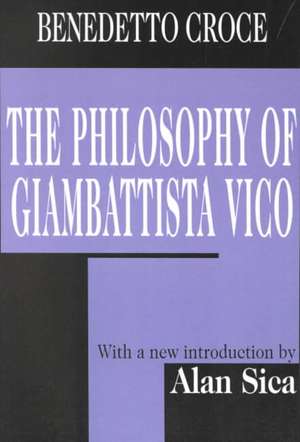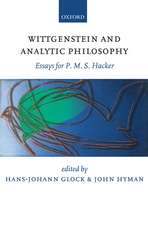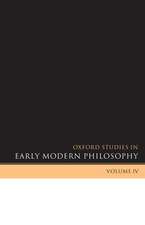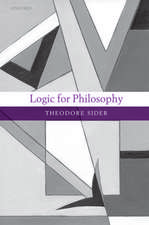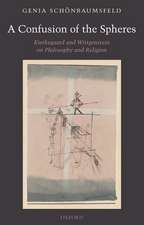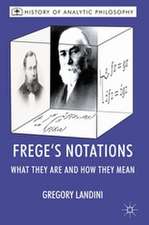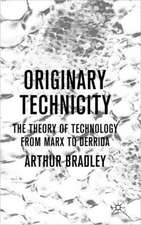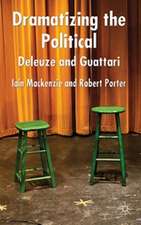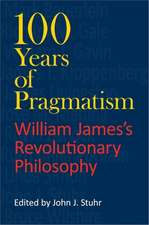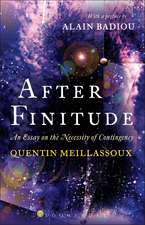The Philosophy of Giambattista Vico
Autor Benedetto Croceen Limba Engleză Paperback – 31 oct 2001
Giambattista Vico (1668-1744) is often regarded as the beleaguered, neglected genius of pre-Enlightenment Naples. His work-though known to Herder, Coleridge, Matthew Arnold, and Michelet-widely and deeply appreciated only during the twentieth century. Although Vico may be best known for the use James Joyce made of his theories in Finnegans Wake, Croce's insightful analysis of Vico's ideas played a large role in alerting readers to his unique voice. Croce's volume preceded Joyce's creation of "Mr. John Baptister Vickar" by a quarter century.
During the last 25 years Vico's ideas about history, language, anti-Cartesian epistemology, and rhetoric have begun to receive the recognition their admirers have long claimed they deserve. Increasing numbers of publications appear annually which bear the stamp of Vico's thinking. Even if he is not yet so renowned as some of his contemporaries, such as Locke, Voltaire, or Montesquieu, there are good reasons to believe that in the future he will be equally honored as a cultural theorist. As a theorist of historical process and its language, there is no more innovative voice than his until the twentieth century-which explains in part why such figures as Joyce and R.G. Collingwood freely drew on Vico's work, particularly his New Science, while creating their own. If Vico was Naples' most brilliant, if uncelebrated, citizen prior to the Enlightenment taking hold in Southern Italy, then Croce (1866-1952) is surely the city's most important thinker of modern times, and the single indispensable Italian philosopher since Vico's death. When a genius of Croce's interpretative prowess, evaluates the work of another, it is inevitable that an explosive mixture will result.
A great virtue of this book is its fusion of Croce's unique brand of idealism and aesthetic philosophy with Vico's epistemological, ethical, and historical theories. If Vico's theory of cyclical changes in history, the corsi e ricorsi, remains fruitful, it might be argued that Croce's evaluation of his countryman' ideas represented the next turn of the philosophical wheel toward enlightenment.
| Toate formatele și edițiile | Preț | Express |
|---|---|---|
| Paperback (1) | 412.09 lei 6-8 săpt. | |
| Taylor & Francis – 31 oct 2001 | 412.09 lei 6-8 săpt. | |
| Hardback (1) | 983.38 lei 6-8 săpt. | |
| Taylor & Francis – 15 noi 2017 | 983.38 lei 6-8 săpt. |
Preț: 412.09 lei
Nou
Puncte Express: 618
Preț estimativ în valută:
78.89€ • 81.13$ • 65.45£
78.89€ • 81.13$ • 65.45£
Carte tipărită la comandă
Livrare economică 19 februarie-05 martie
Preluare comenzi: 021 569.72.76
Specificații
ISBN-13: 9780765808691
ISBN-10: 0765808692
Pagini: 356
Dimensiuni: 152 x 229 x 26 mm
Greutate: 0.52 kg
Ediția:Revised
Editura: Taylor & Francis
Colecția Routledge
Locul publicării:Oxford, United Kingdom
ISBN-10: 0765808692
Pagini: 356
Dimensiuni: 152 x 229 x 26 mm
Greutate: 0.52 kg
Ediția:Revised
Editura: Taylor & Francis
Colecția Routledge
Locul publicării:Oxford, United Kingdom
Cuprins
I: Vigors Theory of Knowledge : First Phase; II: Vigors Theory of Knowledge : Second Phase; III: Internal Structure of the New Science; IV: The Imaginative Form of Knowledge (Poetry and Language); V: The Semi-Imaginative Form of Knowledge (Myth and Religion); VI: The Moral Consciousness; VII: Morality and Religion; VIII: Morality and Law; IX: The Historical Aspect of Law; X: Providence; XI: The Law of Reflux; XII: Metaphysics; XIII: Transition to History : General Character of Vico’s Treatment of History; XIV: New Principles for the History of Obscure and Legendary Periods; XV: Heroic Society; XVI: Homer and Primitive Poetry; XVII: The History of Rome and the Rise of Democracy; XVIII: The Return of Barbarism : The Middle Ages; XIX: Vico and the Tendencies of Contemporary Culture; XX: Conclusion I Vico and the Later Developments of Philosophical and Historical Thought
Descriere
With a new introduction by Alan Sica.
Giambattista Vico (1668-1744) is often regarded as the beleaguered, neglected genius of pre-Enlightenment Naples. His work-though known to Herder, Coleridge, Matthew Arnold, and Michelet-widely and deeply appreciated only during the twentieth century
Giambattista Vico (1668-1744) is often regarded as the beleaguered, neglected genius of pre-Enlightenment Naples. His work-though known to Herder, Coleridge, Matthew Arnold, and Michelet-widely and deeply appreciated only during the twentieth century
